“An educated man will not go hungry.
He will not be easily swayed and he can adapt to any situation better.”
-Jason Rainer Mendoza
Hello, friend!
Welcome to Journey To Millions!
It’s the first quarter of the year 2015. What better way to start the new year than to learn another good way of increasing your chances of becoming a millionaire?
In this post, I will be sharing with you what education can contribute to your own Journey To Millions!
We, Filipinos, value education. This is not a secret. We often hear parents say “Edukasyon lang ang maipapamana ko sa mga anak ko.” And our leaders support us in achieving this dream. In fact, the Department of Education received the biggest chunk of the Philippine government’s 2015 budget, compared to all other agencies.
“Thus, with a budget allocation of P364.9 billion for 2015, the Department of Education will make sure all of our children will be in kindergarten, 98 in every 100 will be enrolled in elementary, and 70 in every 100 will attend high school.” (Source: http://www.gov.ph/)
P364.9 billion for 2015 alone??? Oh, that’s a LOT of money! But if the plan works, that could be money very well spent! Why? Let’s look at some data from the Bureau of Labor and Statistics, USA.
What this graph simply tells us is that, in the US at least, people with higher levels of education really do earn more. Good news, huh?! Not only that. The graph also tells us that people with higher levels of education are less likely to be unemployed. Won’t that be enough reason to study? Well, if you’re not yet convinced, let me add what The College Board, a not-for-profit organization, has to say.
“College education increases the chances that adults will move up the socioeconomic ladder. Of adults who grew up in the middle family income quantile, 31% of those with a four-year college degree moved up to the top income quantile between 2000 and 2008, compared with just 12% of those without a four-year college degree.” (SOURCE: Education Pays)
Cool, huh?! Turns out, our parents were right all along. Education is a must! And the more education you have, the better!
But you might also say, “I don’t believe this! Steve Jobs, Bill Gates, and Mark Zuckerberg were all college dropouts!”
I hear you.
I’ve also heard a lot of people say this in network marketing orientations that Elvin and I have personally been to, and I must admit that we are also very much inspired by the life story of Steve, Bill, and Mark.
However, according to Endeavor Insight, a global non-profit that supports high-impact entrepreneurship, “college dropouts are the exception, not the rule.” Their study of the New York City tech sector revealed that…
“The most successful entrepreneurs are not like Mark Zuckerberg or Bill Gates, and instead tend to be mid-career specialists with substantial industry experience.” (SOURCE: Harvard Business Review, The Myth of the Tech Whiz Who Quits College to Start a Company)
So, if you know someone who plans to drop out of school, please tell them to reconsider. Attending school may not make you a millionaire in a year, as a business could, but it can be “the surest way to millions.” Yes, slowly, but surely. Besides, you’ll have all the time in the world to build your own business even while you are in school or after you graduate.
I want to study, but I have no money!
Oh, I used to say the same thing too! My parents are not rich. In fact, they only graduated elementary school, and never had a stable job. They even had to work as “yayo” and “yaya” to their grandchildren in exchange for my education. (And I will be forever thankful for their gift! Sniff. Sniff.)
If you’re worried about not having much money for school, please don’t. My best friends and I will show you how it can be done for free (or shall I say almost free?).
Here’s a brief interview I’ve had with my friends, Mark Larracas Sibag and Omar Mendoza Pecho, who both benefited from free or almost free education.
Mark’s Story
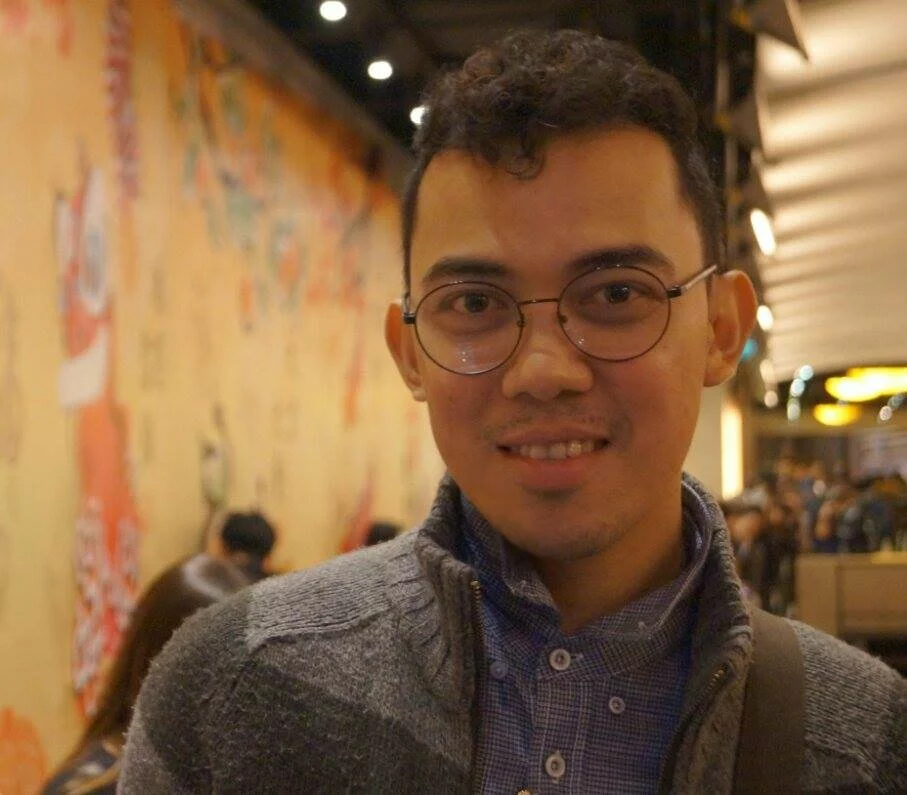 “Seek and you will find…
“Seek and you will find…
There are people who are always willing to help.”
Edel: Please tell us about your educational experience from preschool to postgraduate school. (What schools were you from and how did you pay for it?)
Preschool
Jose Rizal Memorial School, Calamba, Laguna
Elementary school
Jose Rizal Memorial School, Calamba, Laguna
High school
Canossa Academy – Calamba, Laguna
Undergraduate school/college
University of the Philippines – Los Banos, Laguna
Graduate school
Myongji University, South Korea
Postgraduate school
Myongji University, South Korea
Mark: I had the same excitement about studying in preschool and elementary school (Jose Rizal Memorial School, a public school, also known as “Central 1” in Calamba, Laguna). Learning had been so much fun. I got up every morning with all the things I needed for school already prepared– school uniform, snacks, and allowance. I was very active in class. Going back home after school, I had always been excited to do my homework and answer some of the workbook exercises in advance.
Life was so easy for me. I did not even mind about the school expenses. What I knew was that enrolling in a public school was affordable. Back then, my father was an OFW and he earned enough to support me and my elder brother and two elder sisters, who were attending a catholic high school.
When I was in grade six, my father lost his job. I remember he told me not to go to high school. On that very moment, I felt devastated because he was really serious about it. I was already hopeless, not until I received a scholarship recommendation from my adviser (Lucky me!).
As a scholar in Canossa Academy, Calamba, I was more diligent but also more reserved. I thought I had to think less of others as I had nothing more to give in terms of money or material things. That’s the reason why I always say I was “busy watching TV” everytime my friends were inviting me to a get-together. I knew I have the sincerest friends ever, but perhaps, back then, I have not yet learned how to humbly receive from others. I felt bothered if I made somebody worry about me (but that was long ago).
I believe I was not competitive with others, but rather with myself. I did not want to excel in my studies for people to see, but to challenge myself to go beyond my boundaries.
It was the most difficult years of my life. My father earned only from contractual jobs, not enough for our family’s living expenses. I only had one set of school uniform during the first two quarters and my mother had to wash it every night. It was really painful to endure seeing mom every day, ironing my school uniform, to get it fully dry before I go to school the next day. (But I am sure that I could very well pass as a “best-in-uniform” candidate, if there was such a competition back then. LOL.) This is just one of the daily dramatic experiences I had during those years.
Despite all these, I graduated in high school with honors, wearing the same shoes that I wore during my elementary commencement exercise. Thanks to the (considerably big) shoe size allowance!
In college, I received full tuition fee scholarship from the University of the Philippines, Los Banos. Life was quite better since my elder brother was already supporting my education.
However, I was still on a tight budget because I had to make Php 2,000 last for a month. I am glad I have been blessed with an angel friend. I had good memories in college to recall—a surprise birthday cake after my MCB 150 (Microbial Ecology) class in IBS LH-2, free lunch at Indios (a restaurant offering spicy sisig with egg), free merienda time at McDonald’s, and a million worth great bonding time while riding a jeepney going back home.
All those happy memories and my hopes for a better life with my family were enough to keep me going. I did not receive an academic honor in college, but I certainly knew that academic honor was not the only thing I needed to achieve my goals.
Prior to coming to South Korea, I worked as a Quality Assurance Associate at a medical device company for six months. Prior to that, I worked as a full-time English tutor for a Korean elementary student and his mother for almost three months. Also, I used to be a high school Biology teacher and I enjoyed it.
However, I felt like I could do something more than teaching or more than approving shipment and quality control documents. I also realized that I could hardly save from my then Php 8,000-12,000 gross monthly salary.
Eventually, I learned about the postgraduate opportunity in the Department of Environmental Engineering, Myongji University from my Korean employer. She gave me the e-mail address of her former (Filipina) English tutor who was also a student in the said university.
It took six months from the processing of the application to admission. Since I did not have any savings, my brother supported me with Php 60,000 to pay for the application, travel expenses, and related fees.
Thankfully, I received full scholarship from Myongji University, so, I managed to send money back to the Philippines from my monthly stipend (USD 550, M.S.; USD 1100, Ph.D.). From this monthly stipend, I took my food allowance and housing fee. But still, I was on a tight budget. Fortunately there were a few times when I received some cash incentives for my accomplishment in the lab.
I received my M.S. degree in 2010 and Ph.D. degree in 2014, from the same university. Everything went according to my plans. However, I didn’t know that there are actually many other great institutes that could help build my research career, offering better study benefits, until I have attended several international conferences.
I believe that in life, there are things which happen for some unknown reasons, and this is what makes life exciting for me. But most of the time, things happened because of the reasons or choices I made.
Edel: Could you recall a time when you had trouble coming to school because you didn’t have money? How difficult was it?
Mark: When I was in grade six, almost every afternoon I had to borrow money from my aunt so I could come to school the following day.
When I was in high school, there were times when I asked my mother at night if I have allowance or packed lunch for the next day. If she could not borrow money from my aunt in the morning, she would bring my packed lunch to school and the other half of my daily allowance.
Edel: Looking back, do you think your sacrifices were all worth it?
Mark: Definitely my sacrifices were all worth it. With all the blessings shed upon me, I have always been very thankful.
Edel: What advice do you have for our fellow Filipinos who want to study or go to school but lack the resources to do so?
Mark: Seek and you will find. Right timing matters to achieving your academic goals. Know exactly the time when academic opportunities are available. Share your aspirations to the right person–at the right place and at the right time. There are people who are always willing to help.
Omar’s Story
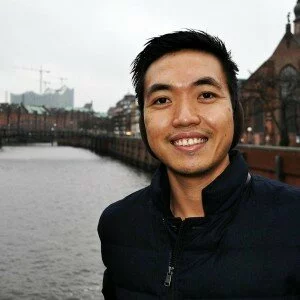 “Act, hope and trust.
“Act, hope and trust.
Maybe, you will even need to act, hope and trust over and over again.”
Edel: Please tell us about your educational experience from preschool to postgraduate school. (What schools were you from and how did you pay for it?)
Preschool
Eduardo Barretto Sr. Elementary School, Calamba, Laguna
Elementary school
Eduardo Barretto Sr. Elementary School, Calamba, Laguna
High school
Canossa Academy – Calamba, Laguna
Undergraduate school/college
University of the Philippines – Diliman, Quezon City
Graduate school
Institut National Polytechnique de Grenoble / Grenoble INP, France and Technische Universität Darmstadt / TU Darmstadt, Germany
Postgraduate school
Swiss Federal Institute of Technology / ETH Zurich, Switzerland
Omar: The preschool and elementary school is classified as “public” school. Education is supposedly free or with minimal school fees. At that time, my grandparents’ family supported my schooling.
After elementary, I attended a private sectarian high school. The fees were quite a lot for our family. I attended the school under a scholarship support, which paid mostly the school fees. My grandparents’ family paid the miscellaneous fees and other requirements.
I finished my undergraduate degree in a state university. Again, education is supposedly free or with minimal fees. The university is located in Quezon City. Therefore, aside from the tuition fees I need to pay the monthly rent for a bed space and to pay for food and miscellaneous allowances. I got a scholarship, which mainly paid the tuition fees and my family shouldered the rest. During the last two years of the undergraduate program, a scholarship paid the tuition fees and parts of the miscellaneous allowances. I also gave tutorial services and class reviews for entrance exams for extra income.
The graduate school was fully funded by the European Commission, which included tuition fees, monthly allowance, and travel costs.
The post-graduate schooling is fully funded by the Swiss National Science Foundation, which approved the project I am currently working on.
Edel: Could you recall a time when you had trouble coming to school because you didn’t have money? How difficult was it?
Omar: I could still recall going to school maybe not without any money but with limited money. I didn’t mind not being able to buy things that I would have wanted to have. I just settled for what my limited money can actually acquire.When I was in elementary and high school, I didn’t need much. All I needed when I was in the school was money to buy snacks for the morning and afternoon breaks. I always went home for lunch. I think my family made it easier for me. Although I was quite sure it was hard for them.
In high school, I often brought packed lunch. My daily allowance was also not much but enough to buy something for the breaks or after school cravings.
The school requirements changed from elementary to high school. More projects were required and more materials were needed. Fortunately, I was the only one in the family studying in a private school.
One of the most challenging times was during my undergraduate. Aside from the scholarship, my family financed my education. I needed to pay for the bed space, monthly food allowance, transportation, and school requirements. It was tough especially the first weeks. I had to pay for every meal as cooking was not allowed. I remember eating rice with “chichirya” at some point. I liked the taste though. I didn’t know how to allocate my allowance. I didn’t know how to prioritize things. After a few weeks, I realized the need to spend my allowance more wisely. It took a lot of self-control and discipline.
Edel: Looking back, do you think your sacrifices were all worth it? Why?
Omar: I believe my sacrifices and the sacrifices of other people who made everything possible were worth it. Those sacrifices and choices were crucial in order to achieve my goals. It was not always resulting to what was initially planned but I believe there are some points in life that we have to make the most of what we have at the moment, no matter what the result of a plan is.
For me, making decisions and doing sacrifices are transformative. I think it changes the way you think, the way you value something, the way you live. I believe they were all worth it because I enjoy wherever I am now or how I live my life now. For sure there are still sacrifices and choices to make. And maybe, even everyday I do a little sacrifice.
Edel: What advice do you have for our fellow Filipinos who want to study or go to school but lack the resources to do so?
Omar: It is going to be tough and you will be challenged in different ways. One has to take the risk of going through a lot of possible ways and means to make things possible.
The worst thing one can possibly get as an answer is “No”. It does not necessarily mean that you are not qualified or you do not have the necessary skills and educational background. Sometimes, there are things beyond our control that limit us. For example, several programs have their own targets, quotas, and I believe it is also a matter of right timing.
Moreover, if they tell you that you lack some years of experience or studies, then maybe you really need to gain experience or study a few more years, then apply again.
There are scholarships, grants, and awards around the world, even some of them targeting students from developing countries.
I also consulted and sought help from friends and families. You just have to believe and to trust people. I think if they feel that your goals are genuine, you have clear targets, and that they have the capacity to help you, they will support you. Act, hope and trust. Maybe, you will even need to act, hope and trust over and over again.
Today, Mark and Omar are in a better position to help themselves, their families and friends escape from poverty. With their education, they have now increased their capacity to earn money, and decreased their probability of being unemployed. The more money they earn, the more money they can save and invest, speeding up their wealth accumulation. BUT, most importantly, they can now give back to their loved-ones by sending their siblings to school, providing financial support to their parents, and occasionally sponsoring “get-togethers” with friends (lucky me!). These would not have been possible if not for their dedication to continuing education, despite all the odds.
Now that you’ve personally read Mark and Omar’s stories of hope and inspiration, let not money or anything stop you from getting educated! Education is a choice. Working hard is a choice. Becoming a millionaire is a choice. The good news is, if you’re at least committed to studying and working hard, becoming a millionaire would not be impossible!
Like Mark and Omar, you can…
- Gather support from your family, friends, and people with good heart who can help you get informed about scholarship opportunities and help you make it through the financial hurdles along the way. As Mark said, “Seek and you will find.”
- Apply. Apply. Apply. As Omar said, some might say “no,” but when you get a “yes,” it will all be worth it!
- Work part-time while studying OR study part-time while working. It doesn’t matter whichever choice you make between the two as long as you stay the course and achieve your goal.
- Appreciate the government’s free education from preschool, elementary, high school, college, vocational, training, and whatever educational programs they offer. Public schools are good; not perfect, but good. The government’s free educational programs can be your ticket to the bigger, brighter world out there. It all depends on you!
- Choose to live simply while studying. This will allow you to have enough financial resources to pay for your school- related expenses.
- Believe that the sacrifice will pay off. It can be very disheartening to experience tough challenges and it’s almost a certainty that in one way or another you will fail, but if you believe that your education can help you make a better life for you and your loved ones, making sacrifices shouldn’t be a problem.
Just a quick note: Please notice that none of our parents (Mark, Omar, and mine) were rich, but we do not blame them for being so. We love them so much and we recognize that as much as our parents have the responsibility to send us to school, it is also our personal responsibility to do everything in our capacity to educate ourselves. We know, in our heart of hearts, that our parents would have loved to send us to the best schools if only they have had the resources to do so.
As always, before you go and leave this post, please feel free to type in your thoughts on this topic on the comments section below.
Please tell us if this article has helped you in anyway. Elvin, Mark, Omar, and I would be very glad to hear your stories too.
Lastly, if you know anyone who could benefit from this post, please take a second and send them a link to this article. Help us help others reach for their dreams.
Until my next post.
Love,
Edel
P.S.1. Learn from the best in the world, for free!
If you are not a fan of the conventional paths to education or you find it hard to physically attend classes due to distance or time constraints, but you have a reliable internet connection at home and still want to continue learning, then you might want to try Massive Online Open Courses or MOOCs (pronounced as “mooks”).
MOOCs are pretty new for us in the Philippines, but it has been largely available to anyone in the world since 2008. MOOCs are online platforms where any person in the world can enroll in online classes administered by the top universities in the world (like Harvard, Stanford, Duke, etc.)
Here are a few of my own favorites:
1) COURSERA —> “Take the world’s best courses, online, for free.”
2) EDX —> “Take great online courses from the world’s best universities.”
3) UDACITY —> “Stand out. Get that ideal job. Grab that promotion. Stand out by learning in-demand tech skills from the best companies in Silicon Valley.”
Some courses are paid, but most are free. Some are scheduled, some self-paced. But the most important part is that free high-quality education has never been this accessible to you and me! It would be crazy if we won’t give it a try!
Also, if you are planning to go back to school for continuing education, you might want to get your feet wet with some of the free online courses offered by these MOOCs, to see how serious you really are with your chosen course or to see how compatible your strengths and weaknesses are with your prospective course. This strategy can help you avoid shifting from one course to another, again, potentially saving you lots of time and money.
If you still have a hard time imagining how MOOCs can help you gain free education, you might want to read this article: The Best MOOC Provider: A Review of Coursera, Udacity and Edx.
P.S.2. On choosing a course or training program to study
Before choosing a course or training program to enroll in, you might want to browse over the Department of Labor and Employment’s “PROJECT JOBSFIT: The DOLE 2020 Vision” where a comprehensive list of in-demand and hard-to-fill jobs were discussed in detail. Local jobs and overseas jobs were covered in Project Jobsfit, giving you a glimpse of the Philippines’ manpower skills requirements and availability up to 2020.
Project Jobsfit can help you decide which course or training program to take depending on the “labor market demand” now and in the coming years. It can help you avoid jobs with manpower “over supply,” making you save a lot of money in the end.
Here is a particular example of a valuable information quoted from the Jobsfit report.
“He [the DOLE Secretary] particularly noted the low turnout of applicants for specialized skills requirements, for instance, in job openings for pharmacists, where only eight applicants turn up for every 10 vacancies.” (from Chapter 2, page 24)
Good for those who want to be pharmacists? You bet!
On the other hand, here is an example of an employment risk.
“Nurses are shifting careers to become call centers agents because of the difficulty in finding jobs abroad, particularly in the United States, which has recently imposed visa restrictions.”
There are so many other things that can be learned from the report, but for regular folks like you and me, its greatest contribution would be to increase our labor market awareness.
Good luck!
If you enjoyed reading this article, get email updates (it’s free).

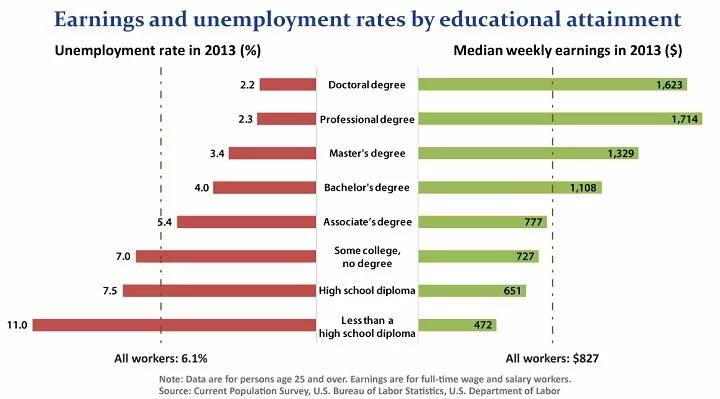





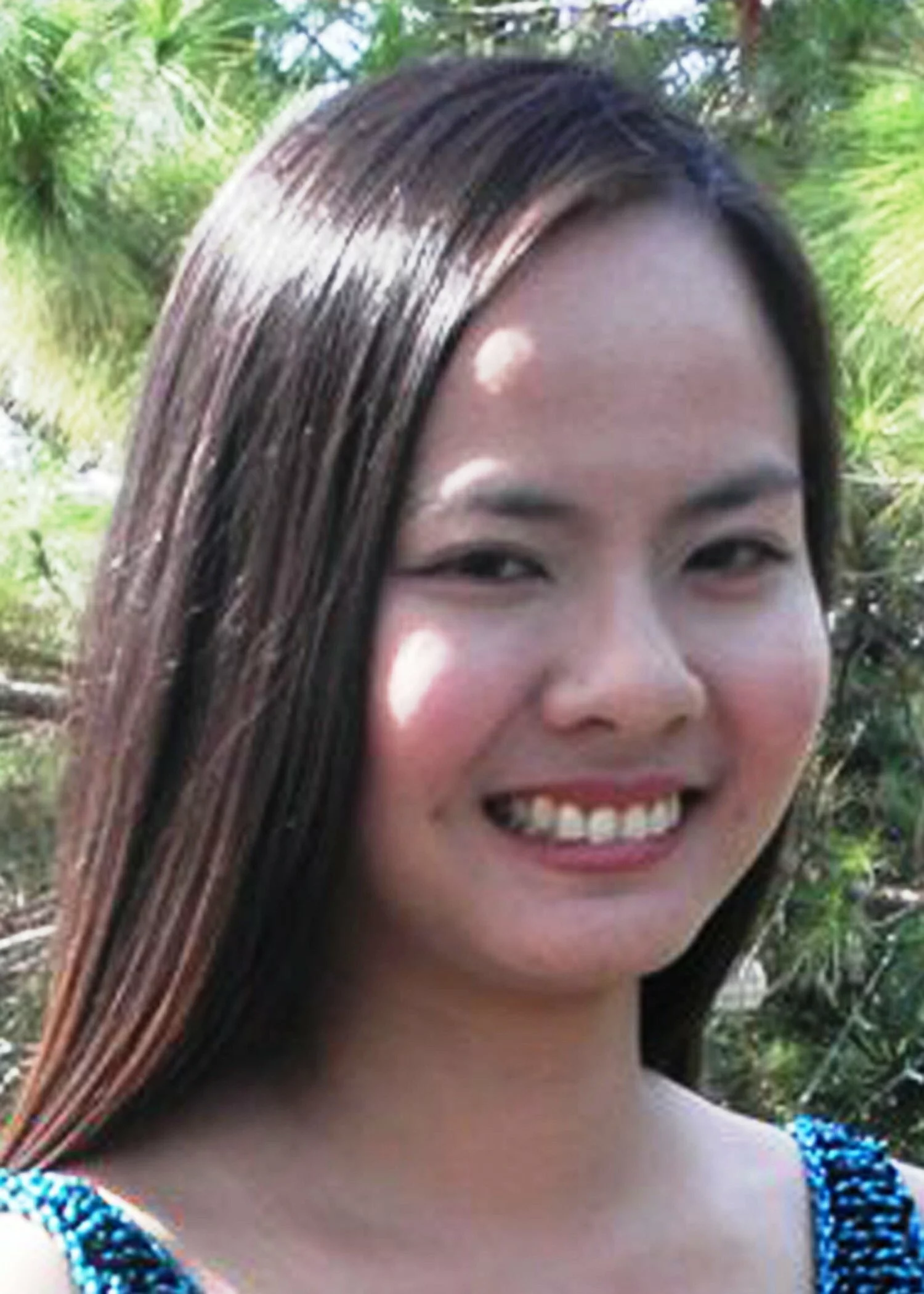 Dimples is a Filipino Personal Finance Advocate, a work-at-home wife and a graduate of the University of the Philippines.
Dimples is a Filipino Personal Finance Advocate, a work-at-home wife and a graduate of the University of the Philippines.
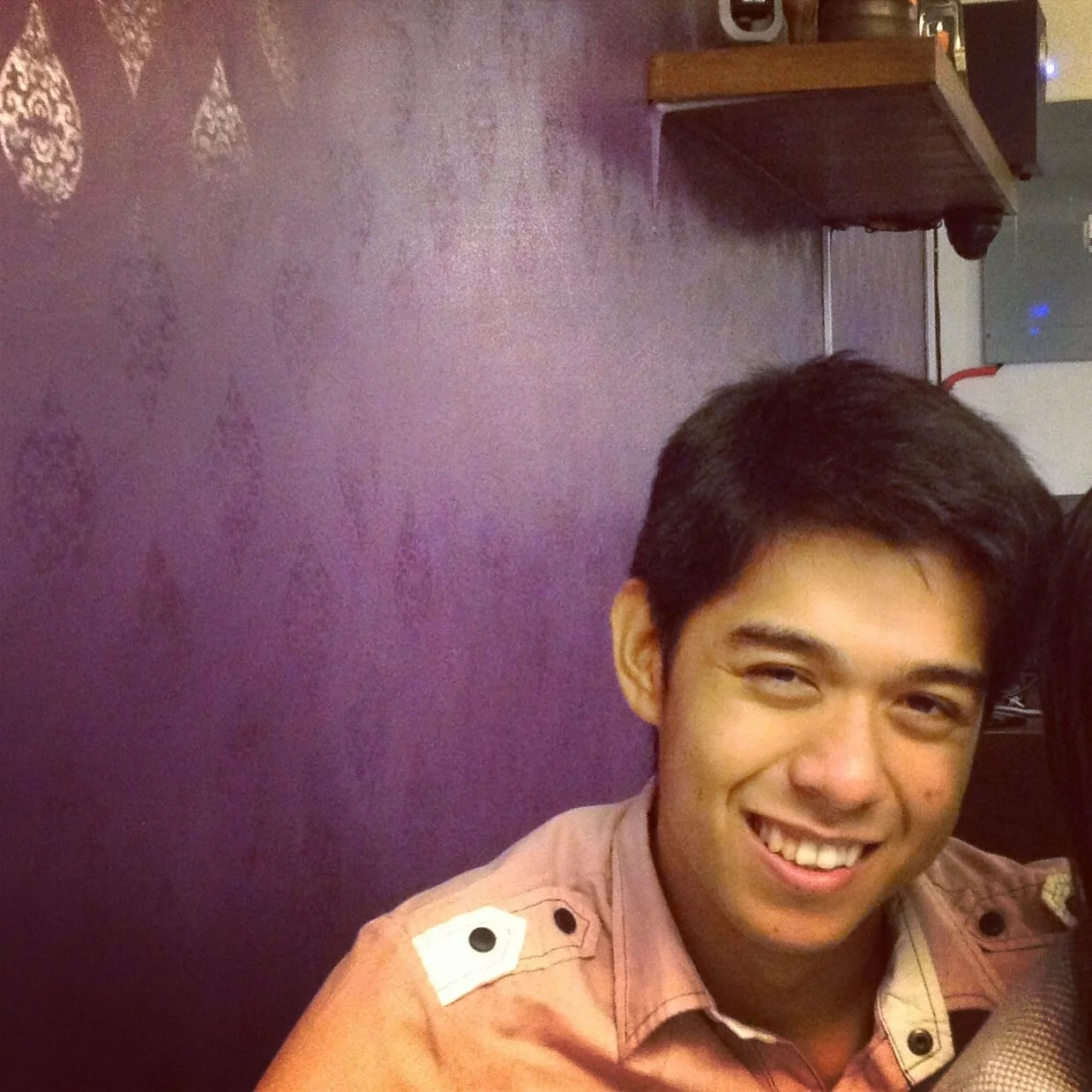 Elvin is a loving husband, an MS Excel Guru and the one who enjoys lurking at the comment section to answer readers’ questions.
Elvin is a loving husband, an MS Excel Guru and the one who enjoys lurking at the comment section to answer readers’ questions.
{ 8 comments… read them below or add one }
Hi Edel
Reading your stories about Mark, I cant help but to remember also all my sacrifices just to finish my studies. Our stories are almost the same.
I started to be a full-time scholar since grade 3. At first, I didn’t give importance on it but when my teacher gave me a grade that almost lost my scholarship, that is the time I realized I had to study well or else I will stop studying. I remember when my mother talked to me after having that grade, she said, “Apple, you need to do good next time or else your scholarship will be revoked and you can no longer study because our money is not enough.”
At my young age (9years old), I’ve learned to study by myself because I didn’t want to stop studying. I am not like the other scholars who are really bright; I remember when my sister is teasing me because after school I had a table where I will always start doing my assignment and will study again and then sleep. It’s my everyday routine. Kinda boring, right?
When I’m in high school I need to give my free time (recess time) to work as a student assistant librarian in return for my scholarship. During my third year in high school I really wanted to be a COCC however I gave this up for the fear that I might not be able to balance my academics and lose my scholarship but I really really like it.
Finally I graduated with full scholarship. As what I have told you I am not that bright student but because of my perseverance and enthusiasm I was able to study at UPLB. Just like Mark I needed to strech the 2000php allowance for 1 month which in reality it is really not enough so I decided to apply as a student assistant. Aside from this, I also did small businesses like selling perfumes, selling load, part time assistant in computer shop, etc. Go lang ako ng go kung ano makita kong makakatulong sakin. I didn’t mind what others might say to me.
I still have a social life. It’s all just how you will manage and spend your money wisely. Until I graduated.
Now, I am in my last sem of Masteral at University of the Philippines, Open University.
I just want to say that even though you’re not that bright a student, but you have a dream, just keep on holding that dream.
Diskarte sa buhay ika nga at hindi ito natututunan sa classroom.
Sorry Edel, I share my stories as well, I hope others may also learn from it… If you have a dream just keep on holding on it, diskarte lang yan.
Thank you for this opportunity. I will surely share your blog to others for inspiration. 🙂
Dear Apple,
Thank you sooo much for taking time to read this post and for generously sharing with us your own story! Grabe! You are all admirable talaga for your perseverance and dedication to your education. Nakaka-touch talaga ang mga stories nyo. Sniff. Sniff. 🙂
I am very very proud of all of you! And I wish that more of our Filipino brothers and sisters would have the same passion and commitment to education as you have. 🙂
I wish you the best in your last semester and cheers to your Journey to Millions! 🙂
Hi Tita Edel!
I am really glad that you have shared this blog to me. Through this, I have gained another inspiration to carry on and never lose track of my goal. I can still remember how hard it was for me and my family to send me and my older brother to school. My family had problems financially when I was in high school, so we tried to look for a scholarship. Luckily, CAFEC-PTA granted me 50% scholarship, meaning I’ll only be paying half of my tuition fee and other school fees. God is good, indeed! I had a full scholarship when I was in fourth year because I achieved the highest rank in the last grading the year before that. This really helped our family reduce our expenses.
After graduating high school from Canossa Academy, I decided to pursue college in UPLB. We had nothing back then. I always bring packed lunch when I was in my first year college and had 50 php in my pocket for the fare. I thought I won’t be able to study in college anymore, but God really provided me friends that would be of help to me in times of struggles. I really am so much grateful to Tomomi and to you, Tita Edel, for helping me believe that there is still hope and there are good people who would be there to lift you up.
Currently, I am on my last year and semester and taking up BS Agricultural Biotechnology. And I really do hope that the future will be good to me.
Thank you Tita for letting me share my thoughts! God bless po!
Wow, Bryan! Time really flies!
Biruin mo, graduating ka na pala this sem!?
I am very very proud of you! 🙂
Like your Kuya Omar and Kuya Mark, I have faith that you will not only successfully graduate from college but also achieve whatever you commit your heart to. You know why? Kasi, you keep fighting for your dream! And you have my respect and admiration because of that! 🙂
Sana invited kami sa graduation party mo. 🙂
Love,
Tita Edel
Hi EDEL,
Thank you for sharing this article that contains a very heartwarming and inspiring stories of students that faced many struggles and hardship in pursing their studies in order to achieve their dreams and have a better life. Poverty isn’t a reason to stop pursuing the dreams you have it’s just one of the challenges in life that will developed your determination and strengthens your will to keep on believing and moving forward despite all the odds you will face, just don’t give up, quitting will never be the answer to all your problems. There may be a time when you need to stop but never gave up, instead you use the resources around you and find all alternative ways to bring you back in the course or track that you were pursuing. “Knock and it shall be open, seek and you shall find, ask and it shall be given” opportunities in life is every were you just need to believed and take action so that you can find the right route to get it.
Education can’t make you a millionaire in one go, but mind you it’s a stepping stone in achieving a better life and becoming a millionaire is one of the best success in life that education can give us.
Thank you for sharing this great article.
Thank you EDEL 🙂
Thank you for this inspiring article Ms. Edel. I agree that education is very important and can be our tool to reach our goals. Though it’s not an assurance, it will be an advantage in achieving our dreams and our journey to millions.
Let me share my first article on my blog. The best investment of all time, is investing in yourself.
Thanks!
Hi, Billy!
Thank you for visiting Journey To Millions. 🙂 We agree with your best investment#1 that by going back to school or by enrolling to training institution is one of the best investment.
Elvin
{ 1 trackback }